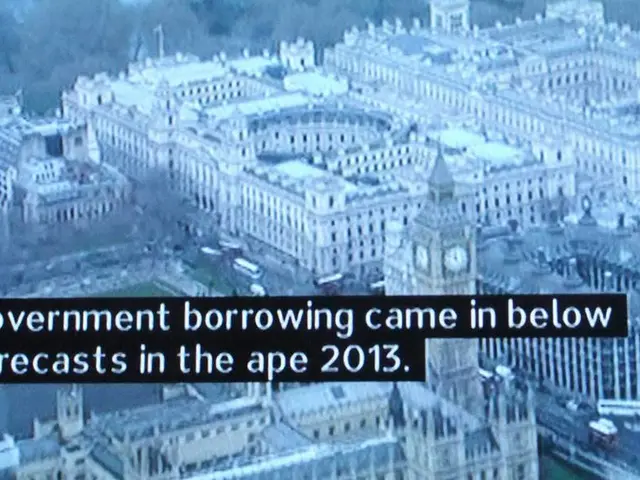U.S.-bound Boeing aircraft returns from China, marked by Trump's trade war escalation
A 737 MAX jet, destined for Xiamen Airlines, found its way back to Boeing's U.S. manufacturing base, thanks to the ongoing global trade standoff instigated by President Donald Trump**. Early Saturday evening, the plane touched down at Seattle's Boeing Field, complete with Xiamen's distinct livery.
The 5,000-mile expedition, which lodged in Guam and Hawaii for refueling, marked the aircraft's return to its point of origin. The jet was among numerous 737 MAX jets awaiting final work and delivery at Boeing's Zhoushan facility in China.
Trump's initiatives have hiked tariffs on Chinese imports to an astounding 145%. In retaliation, China has responded with a 125% tariff on U.S. goods. The financial implications of these tariffs for a Chinese airline receiving a fresh 737 MAX may be devastating, considering the model's approximate market value of $55 million, as per aviation consultancy IBA.
Neither Boeing nor Xiamen Airlines was quick to shed light on the decision behind the aircraft's return.
The arrival of the 737 MAX – Boeing's leading best-seller – symbolizes yet another disruption in new aircraft deliveries due to a shift in paradigm within the aerospace sector's long-standing duty-free status.
The looming tariff conflict and the apparent reversal in deliveries arise as Boeing grapples with the aftermath of a nearly five-year import restriction on 737 MAX jets and past trade squabbles.
Depending on evolving trade tariffs, some aircraft deliveries might remain undecided, with airline CEOs contemplating delaying the arrival of planes in lieu of paying duties, according to analysts. The uncertainty surrounding these policies has the potential to disrupt Boeing's sales momentum in China.
- High Tariffs, High Costs: With each 737 MAX valued at approximately $55 million, the additional fees stemming from new tariffs can significantly impact Chinese airlines' financial health.
- Trade Tensions and Disruptions: Ongoing disputes have caused numerous obstacles for Boeing's operations in China, resulting in unfilled orders for domestic carriers.
- Geopolitical Chaos: The lack of concrete guidance regarding trade policies and parts shipments leaves both Boeing and its Chinese clients in a state of uncertainty, weighing heavy on business relationships and delivery timelines.
- Delayed Deliveries: Some airline CEOs are mulling over postponing aircraft deliveries to sidestep paying steep duties, with the potential to cause more chaos in Boeing's sales strategy within China.
- Aerospace Industry Under Fire: The ongoing trade standoff between the US and China, fueled by President Trump's policies, has become an offensive on the aerospace industry, potentially leading to the disintegration of long-standing business relationships.
- Tariffs Affecting General News: The questionable return of a Boeing 737 MAX jet to its manufacturing base in the US, once destined for Xiamen Airlines, is just one of many stories in the news cycle that highlight the wide-reaching effects of trade tariffs and politics on global industries, including finance and policy-and-legislation.







